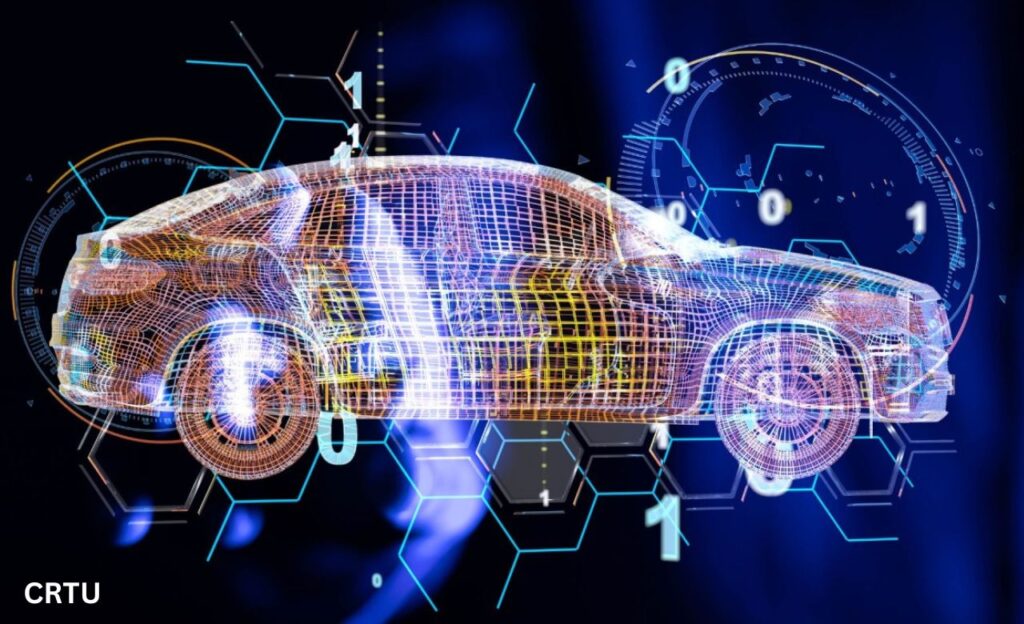
In today’s world, the automobile industry is a backbone in modern transportation and combines the use of engineering, technology, and innovation in designing a vehicle according to consumer needs. The core of Automotive Technology, in simple words, involves the application of advanced technology and engineering principles in designing, maintaining, and developing motor vehicles. Whether an aspiring automotive technician, a student, or an automobile enthusiast, understanding this field is essential to navigate the world of modern automobiles.
This article will provide a comprehensive overview of automotive technology, including its definitions, fundamental concepts, and real-world applications. Let’s delve into the essential details to build a foundational understanding.
Defining Automotive Technology
Automotive technology is a field that cuts across a wide multidisciplinary area ranging from automobile design to repair and maintenance. Here are some key definitions:
- Definition 1: Automotive technology refers to the study and application of engineering principles to design, manufacture, and repair motor vehicles.
- Definition 2: This is a form of engineering that focuses on integrating mechanical, electrical, and software systems within automobiles.
- Definition 3: Automotive technology refers to the tools, processes, and innovations used to improve vehicle performance, safety, and efficiency.
Key Components of Automotive Technology
Automotive technology comprises several key components that work together to power modern vehicles:
| Component | Description |
|---|---|
| Mechanical Systems | Includes engines, transmissions, and suspension systems. |
| Electrical Systems | Features wiring, lighting, and electronic control units (ECUs). |
| Software Integration | Encompasses onboard diagnostics (OBD), infotainment systems, and automation. |
| Safety Features | Includes airbags, anti-lock braking systems (ABS), and collision sensors. |

Intro to Automotive Technology
Understanding the basics of automotive technology is the first step toward a deeper comprehension of the industry. Here are the foundational aspects to consider:
Core Principles
- Systems Approach: Vehicles are complex systems where every part—from the engine to the brakes—interacts to ensure proper functioning.
- Efficiency: Automotive technology strives to optimize fuel consumption and reduce emissions, aligning with environmental regulations.
- Innovation: Continuous advancements, such as electric vehicles (EVs) and autonomous driving, showcase the industry’s dynamic nature.
Types of Automotive Technology
Modern automotive technology is broadly categorized into the following:
- Internal Combustion Technology: Focuses on traditional gasoline and diesel engines.
- Electric Vehicle Technology: Emphasizes battery-powered systems and electric motors.
- Hybrid Systems: Combines combustion engines with electric power for greater efficiency.
- Autonomous Systems: Includes self-driving features powered by AI and sensors.
Why Understanding Automotive Technology Matters
1. Career Opportunities
Learning about automotive technology opens doors to various roles, such as:
- Automotive technician
- Systems engineer
- Electric vehicle specialist
- Diagnostics expert
2. Consumer Awareness
A strong grasp of automotive technology helps car owners make informed decisions about vehicle purchases, maintenance, and upgrades.
3. Industry Growth
The global automotive industry is evolving rapidly, with innovations such as autonomous driving and sustainable fuel systems driving demand for expertise in this area.
Applications of Automotive Technology
Automotive technology isn’t limited to manufacturing or engineering; its applications span a wide range of industries and uses:
In Daily Life
- Smart navigation systems, such as GPS, make travel efficient.
- Advanced driver-assistance systems (ADAS) enhance road safety.
In Motorsports
- High-performance engines and lightweight materials improve racing car performance.
In Sustainability
- Hybrid and electric vehicles reduce environmental impact.
Table: Innovations in Automotive Technology
| Innovation | Description |
| Electric Vehicles (EVs) | Fully electric cars powered by rechargeable batteries. |
| ADAS | Includes lane-keeping assist, adaptive cruise control, and automatic braking. |
| Autonomous Driving | AI-powered systems enabling self-driving capabilities. |
| Connected Cars | Vehicles integrated with IoT for real-time updates and remote diagnostics. |
How to Start Learning Automotive Technology
Step 1: Read Foundational Texts
Begin with introductory books and manuals, such as:
- “Automotive Technology: A Systems Approach” by Jack Erjavec.
- “Modern Automotive Technology” by James Duffy.
Step 2: Take Basic Courses
Enroll in courses, either online or at local institutions, to get hands-on training:
- Automotive repair basics
- Introduction to vehicle diagnostics
- Electric vehicle maintenance
Step 3: Gain Practical Experience
Workshops, internships, or apprenticeships are crucial for applying theoretical knowledge to real-world scenarios.

Challenges in Automotive Technology
1. Rapid Technological Advancements
Keeping up with emerging trends, such as autonomous vehicles and EVs, can be overwhelming for professionals.
2. High Costs
Developing and integrating advanced technologies often requires significant investment.
3. Environmental Concerns
Balancing innovation with sustainability remains a pressing challenge for the industry.
Future Trends in Automotive Technology
Electric Vehicles
The shift toward EVs is gaining momentum, with major manufacturers investing in sustainable and efficient battery systems.
Autonomous Driving
Self-driving cars, powered by AI and machine learning, are set to revolutionize transportation.
Smart and Connected Cars
The integration of IoT and cloud computing is enabling vehicles to communicate with each other and their surroundings.
Conclusion
Automotive technology is one of the fascinating fields which integrate engineering, innovation, and sustainability for the future of transportation. Whether one is interested in pursuing a career, enhancing their understanding as a consumer, or just exploring the subject, a solid grasp of automotive technology provides invaluable insights.
Knowing the definitions, principles, and applications of this rapidly changing industry allows you to move into this area with confidence and curiosity. Automotive technology is bright and open-ended for those who would take the plunge and find their way around.






